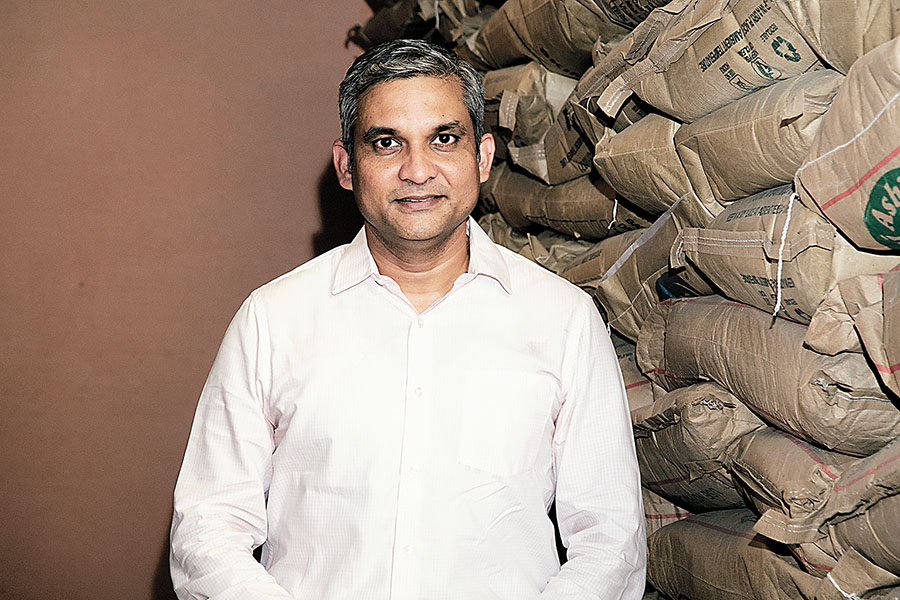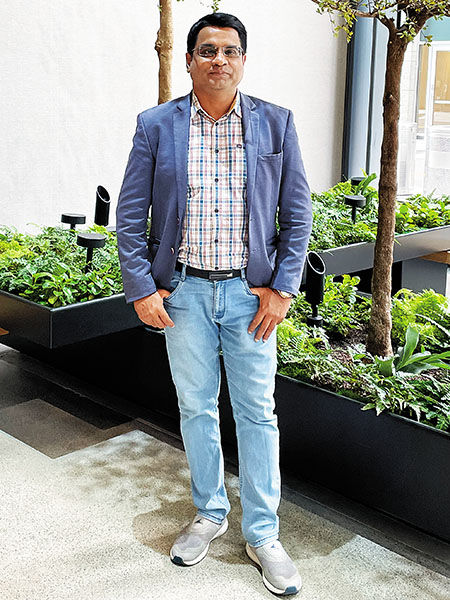5 Agri-fintech startups that run agriculture inland

 Arjun Ahluwalia (left) and Adriel Manigo’s Jai Kisan enables farmers to buy farm equipment at interest rates ranging from 8 to 24 percent
Arjun Ahluwalia (left) and Adriel Manigo’s Jai Kisan enables farmers to buy farm equipment at interest rates ranging from 8 to 24 percent
TThe Reserve Bank of India’s (RBI) increasing scrutiny of fintech startups has led investors to caution. But that is not the case for agri-fintech companies that operate at the intersection of agriculture and fintech. They attracted a cumulative $66 million in funding in 2021 and have already secured $52 million in 2022 YTD (year-to-date), according to data provider Venture Intelligence. One reason for this is the size and enormous potential of the market. India has 126 million small farmers and despite PSL (priority sector loans), credit to them remains scarce and difficult to obtain. Agri-fintech startups are plugging the gaps to help reach these farmers and lift their fortunes. Here is a selection of five such startups:
Jai Kisan
A customer walking into a Croma store – or any other modern retail outlet – to buy, say, a tablet can easily access a range of EMI options at the point of sale. Payments for the Rs 20,000 gadget can be split into smaller, more manageable installments in minutes.
Flip the scenario and think of a small farmer walking into a shop in rural India to buy agricultural equipment such as shade nets. Although this is an asset that will bring him a return, the farmer does not have the same type of access to financing options, leaving him with no choice but to borrow from moneylenders at usurious rates. “The Indian farmer is the only business owner who buys retail and sells wholesale,” says Arjun Ahluwalia, a former private equity expert who co-founded Jai Kisan, with the Philippines’ Adriel Manigo, to solve the problem.
Jai Kisan enables individual farmers and farming enterprises to purchase agricultural equipment at interest rates ranging from eight percent to 24 percent. Loans are only granted against productive assets that can be repossessed in the event of default. Data collected about farmers is used to build credit scores.
What Bajaj Finance did for vehicle finance, Jai Kisan is trying to do for farmers. The results are proof: Since its inception in December 2017, the Mumbai-based startup has enabled $1 billion worth of trade transactions on its platform, and it has seen NPAs of less than one percent, says Ahluwalia. It recently raised $50 million (Rs 398 crore) in a mix of equity and debt in the first close of its ongoing Series B funding round. It has heavy backers like Sygenta and Yara Fertilizers, both leading agricultural companies that have come on board as strategic investors, NABARD, and venture capitalists like Blume and Mirae Asset.
Arya.ag
While overseeing the disbursement of agricultural commodity loans at ICICI Bank, Prasanna Rao saw firsthand how less than one percent of loans went to small farmers. “Larger traders got most of the loans, but it was the smaller farmers who really needed them and where we saw great potential,” he says. He quit his cushy job and set up Arya.ag with Anand Chandra and Chattanathan Devarajan in 2013.
Data showed that only a third of non-perishable commodity grains reached urban centers for sale. The vast majority were lost in the opacity of the system, says Rao. Also, most smallholder farmers are forced to sell their produce soon after harvest due to lack of storage and financing facilities. “He needs the working capital, so he is stuck. Instead, if farmers can be given the freedom to wait a few months after harvest, they can achieve much higher prices. That’s where we come in, he says.
 Prasanna Rao founded Arya.ag in 2013
Prasanna Rao founded Arya.ag in 2013Arya.ag has warehouse facilities close to the farm gate – a network of 10,000 warehouses in 25 states. Through its app, a farmer can discover a warehouse nearby, apply for a low-interest loan and get it within minutes. Average ticket sizes range from Rs 3-5 lakh for individual farmers and Rs 25-27 lakh for FPOs (Farmer Producer Organisations). Since the loan is secured against collateral for a commodity and it is a liquid collateral, Arya.ag has seen negligible default rates, says Rao.
Furthermore, when farmers are ready to sell their grain, Arya.ag helps connect them with sellers, through its digital platform. So far, the startup has facilitated storage of goods worth Rs 15,000 crore and, as a registered NBFC, has offered Rs 8,000 crore in funding through its own books as well as its partner financial institutions. “The biggest challenge in agriculture is bridging the trust gap between buyer and seller. I think we’ve made it.”

Whrrl
Whrrl, a less than two-year-old start-up, operates in the same way as Arya.ag, offering storage facilities to farmers and loans against stored goods. However, the warehouse receipts are tokenized using blockchain technology to minimize fraud, duplication and over-lending – problems that often plague the system.
“All these problems are eliminated on the blockchain,” says Ashish Anand, co-founder and CEO. Whrrl currently has a presence in 1,400 warehouses, primarily in Maharashtra but also in four other states and has disbursed over $6 million in loans to more than 18,000 farmers in the last 12 to 14 months.
 Ashish Anand’s Whrrl provides loans against warehouse receipts on the blockchain
Ashish Anand’s Whrrl provides loans against warehouse receipts on the blockchainGoing a step further, Anand along with his co-founders Abhishek Bhattacharya and Falguni Pandit will soon launch Bru Finance. These tokenized assets in the real world [warehouse receipts] will be converted into NFTs (non-fungible tokens). Investors can buy and sell these NFTs on the Bru platform, indirectly lending the farmer money to carry out his activities. “NFTs will be bought and sold using cryptocurrencies and we are trying to find a way where the farmer can quickly convert that crypto to INR,” says Bhattacharya. “So in a sense we are bridging the gap between centralized finance (CeFi) and decentralized finance (DeFi).”
But given the volatility of crypto prices, will FPOs and smaller farms – Brus’ target customers – buy into the concept? “That’s why we’re going to use Tether, a stable to do these transactions,” says Bhattacharya.
Despite the collapse of Terra, a so-called stablecoin pegged to the US dollar, in May, the co-founders are positive about the uptake. “We are currently testing it and the service will be available not only in India but in Africa and Southeast Asia which have similar agricultural markets to ours,” says Anand.
Samunnati
Samunnati, a Chennai-based start-up that offers market linkage and financing solutions to smallholder farmers, crossed Rs 10,000 crore gross transaction value (GTV) across its agri trade and agri finance solutions in January. Anilkumar SG, founder and CEO, said at the time that it was a “significant milestone” in Samunnati’s six-year journey.
Over 50 percent of this GTV came in the previous 18 months, despite the pandemic. In Thoothukudi, for example, a district in Tamil Nadu with over 1,500 farmers, farmers were unable to find buyers for their produce – coriander, chillies, onions, pulses and maize. Samunnati stepped in and through its platform, which connects over 1,500 farmer collectives with a combined membership base of over six million farmers, was able to help them.
Samunnati, which operates across 22 states but has 30 percent of its business from Tamil Nadu, also provides working capital loans, bill discount loans, short-term loans given for a period of less than one year and long-term five-year loans to help farmers and agribusinesses to buy agricultural equipment or other infrastructure. As Anilkumar says, “Samunnati’s vision is to make markets work for small farmers.”
He is a
Telangana-based Hesa, founded by Vamsi Udayagiri and Hema Nandiraju in 2019, connects businesses, banks, governments and even NGOs with last-mile rural customers using a “phygital” approach. Its digital B2B platform connects the two parties online and a village-level entrepreneur called ‘Hesaathi’ acts as the physical point of contact. Think of them as business correspondents who help Hesa’s customers better interact with rural customers. “The rural trade ecosystem is driven by trust, relationships and physical interactions. So Hesaathis play a central role,” says Udayagiri.

Besides working with brands like P&G and Himalaya to reach rural Indians with buy-sell propositions, Hesa works with banks to help rural customers with services like opening demat accounts, setting up fixed deposits or getting loans. The startup, which raised $2.3 million in a pre-Series A round led by Venture Catalysts in June, also wants to equip 60,000 Hesaathis — up from about 30,000 now — with technology tools to help rural customers pay bills, withdraw money and top up. mobile phones.
Hesa is currently active in Telangana, Andhra Pradesh and Karnataka, and plans to expand to five more states in the next quarter. “We do over 15 lakh transactions a month on our platform and aim to double that by the end of this financial year,” says Udayagiri.
Check out our 75th Independence Year discounts on subscriptions, additional Rs.750/- off on website prices. Use coupon code INDIA75 in the box. Click here for details.























